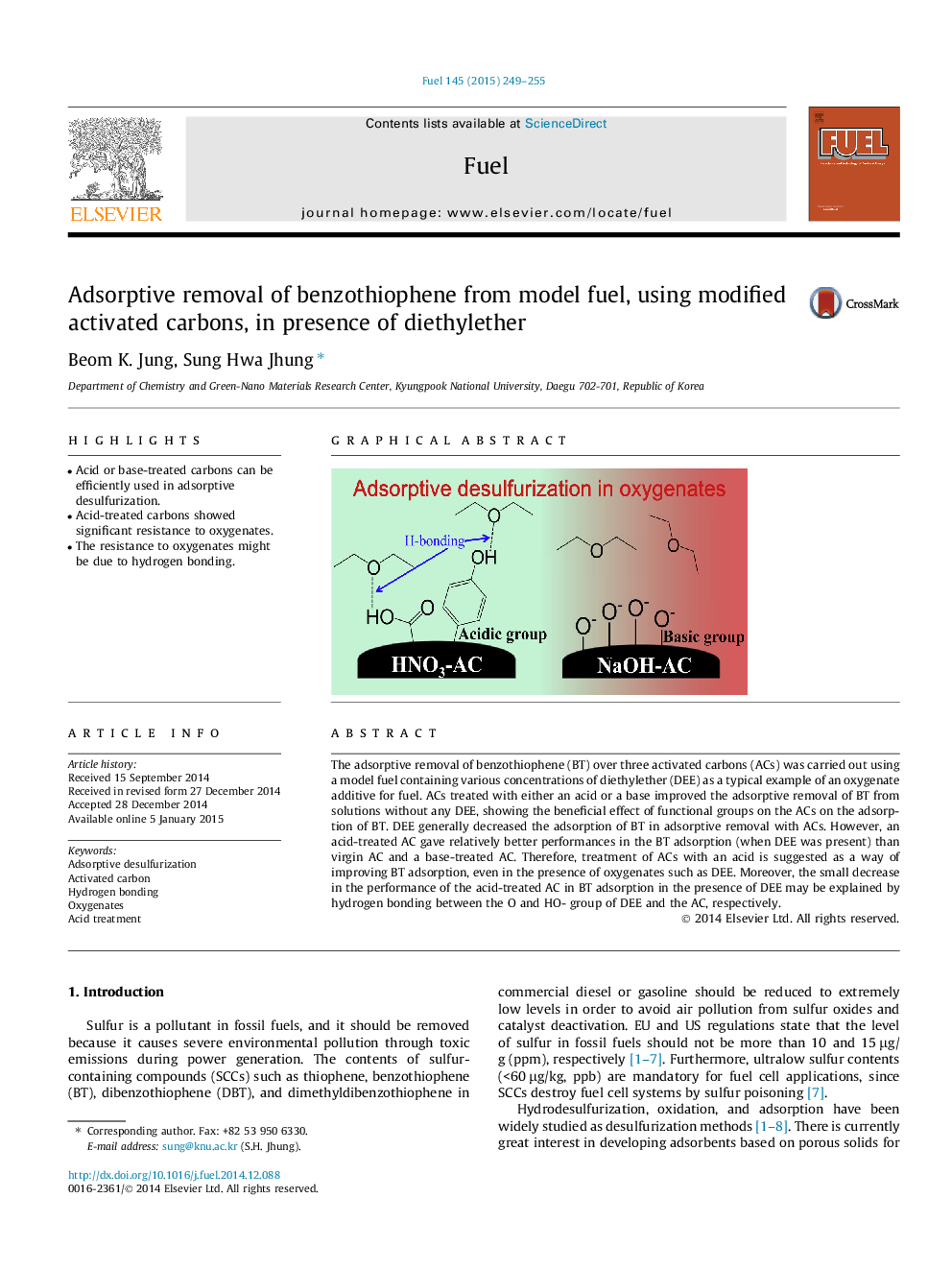| کد مقاله | کد نشریه | سال انتشار | مقاله انگلیسی | نسخه تمام متن |
|---|---|---|---|---|
| 205816 | 461125 | 2015 | 7 صفحه PDF | دانلود رایگان |
• Acid or base-treated carbons can be efficiently used in adsorptive desulfurization.
• Acid-treated carbons showed significant resistance to oxygenates.
• The resistance to oxygenates might be due to hydrogen bonding.
The adsorptive removal of benzothiophene (BT) over three activated carbons (ACs) was carried out using a model fuel containing various concentrations of diethylether (DEE) as a typical example of an oxygenate additive for fuel. ACs treated with either an acid or a base improved the adsorptive removal of BT from solutions without any DEE, showing the beneficial effect of functional groups on the ACs on the adsorption of BT. DEE generally decreased the adsorption of BT in adsorptive removal with ACs. However, an acid-treated AC gave relatively better performances in the BT adsorption (when DEE was present) than virgin AC and a base-treated AC. Therefore, treatment of ACs with an acid is suggested as a way of improving BT adsorption, even in the presence of oxygenates such as DEE. Moreover, the small decrease in the performance of the acid-treated AC in BT adsorption in the presence of DEE may be explained by hydrogen bonding between the O and HO- group of DEE and the AC, respectively.
Figure optionsDownload as PowerPoint slide
Journal: Fuel - Volume 145, 1 April 2015, Pages 249–255
